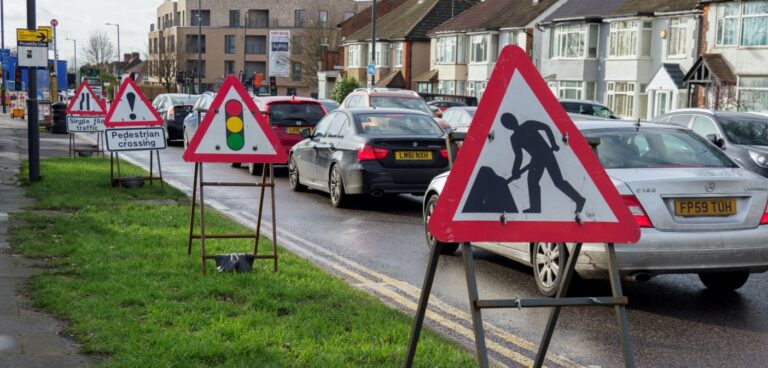The construction, maintenance and operation of the roads and railways is also adding to the UK’s carbon problems, it is not only from transport tailpipe emissions, a new study from DecarboN8 Research Network has found.
All transport infrastructure generates carbon emissions in its construction, maintenance and operation. This hidden carbon cost, known as embodied emissions, can be significant, the Engineering and Physical Sciences Research Council funded network said.
Currently, the government department looking to build new infrastructure does not have to account for the emissions from those decisions. DecarboN8 called for this disjoint to be resolved, as delivering Net Zero by 2050 will require reducing carbon emissions across all sectors.
The new research quantifies the embodied emissions involved in building and maintaining typical transport infrastructure. The research looked at real infrastructure proposals for North East England, selected with support from Transport for the North (TfN).
Peter Cole, principal environmental and sustainability officer at TfN, said: “Being a research partner in this project, along with subsequent discussions around the findings, has elevated our level of understanding around the issues with embodied carbon and will help refine TfN’s future work in this area, allowing us to better integrate embodied emissions into recommendations on infrastructure investment.”
The research compared standard construction materials and methods with more sustainable alternatives to determine the potential for reducing the carbon cost of road and rail projects.
It also looks at the potential impact of a steadily decarbonising electrical grid. Dr Kadambari Lokesh, who carried out the analysis, added: “There is now a general acknowledgement of the significance of whole life carbon in the transport infrastructure. This research measures the scale of its contribution. Even with a steadily decarbonising grid, 10-30% of transport infrastructure emissions will remain. To reach net zero by 2050, this will need to be addressed.”
According to DecarboN8, this new evidence can help provide clarity around the costs and benefits of transport infrastructure projects. It hopes the scale of embodied emissions from infrastructure will be of interest to those involved in early-stage decision making, to ensure new schemes do not undermine national and local climate ambitions.





